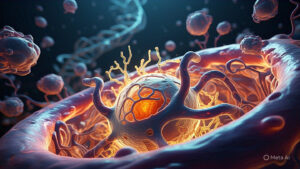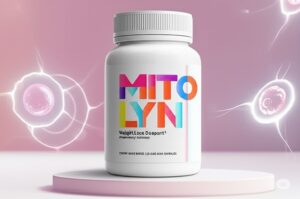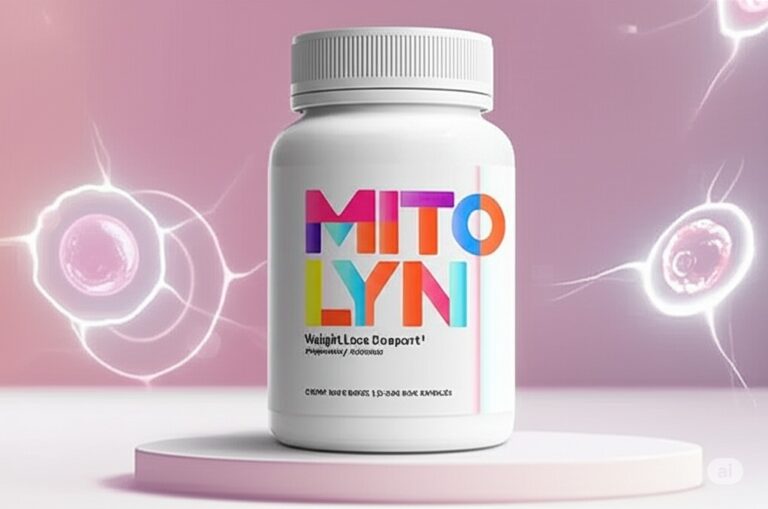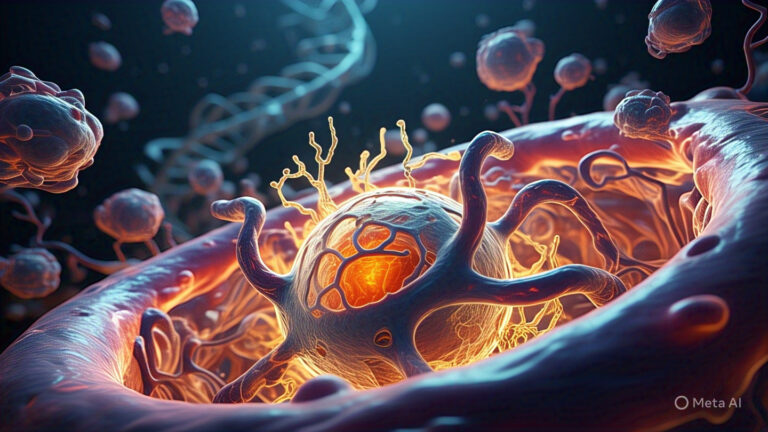Home Remedies for ADHD: Natural Solutions for Better Focus and Calm in 2025
Estimated reading time: 10 minutes
Key Takeaways
- Natural remedies can support but don’t replace professional ADHD care.
- Diet, supplements, mindfulness, exercise, and sleep play helpful roles for some.
- Safety, quality, and provider oversight are essential when trying home remedies.
- Reliable sources like CHADD, the CDC, and NIMH provide trustworthy ADHD information.
- Balancing structure, communication, and lifestyle tweaks can ease daily ADHD challenges.
Table of Contents
- 1. Introduction to ADHD and Natural Remedies
- 2. What Is ADHD? Understanding Symptoms and Challenges
- 3. Can Home Remedies Really Help with ADHD Symptoms?
- 4. Top Evidence-Based Home Remedies for ADHD
- 5. Lifestyle Adjustments to Complement ADHD Remedies
- 6. Safety Precautions When Trying Home Remedies
- 7. Debunking Myths About Natural ADHD Remedies
- 8. Real-Life Experiences with Natural ADHD Remedies
- 9. When to Seek Professional Help for ADHD
- 10. Tools and Resources for Managing ADHD Naturally
- 11. Frequently Asked Questions About Home Remedies for ADHD
1. Introduction to ADHD and Natural Remedies
Living with ADHD, or supporting someone who does, can feel like a daily uphill climb. Attention-Deficit/Hyperactivity Disorder affects millions, with about 9.4% of children in the U.S. facing this challenge, according to the CDC. Symptoms like trouble focusing, constant restlessness, or impulsive actions often disrupt school, work, and relationships.
Many turn to natural paths out of concern for medication side effects or a preference for holistic care. It’s understandable to seek gentler ways to bring balance. At WikiHomeRemedies, our goal is to guide you through safe, evidence-backed solutions drawn from trusted sources like the WHO and NIH. We’re here to help you explore nature’s healing potential with clarity.
Before diving in, a gentle reminder: always consult a healthcare provider before starting any new approach. Natural remedies can support, but they don’t replace professional care. Let’s walk through understanding ADHD and uncover practical ways to ease its impact together.
2. What Is ADHD? Understanding Symptoms and Challenges
ADHD, or Attention-Deficit/Hyperactivity Disorder, is a neurodevelopmental condition impacting both children and adults. It often shows up as persistent struggles with focus, behavior control, and energy levels. As the National Institute of Mental Health (NIMH) explains, it’s more than just occasional distraction—it’s a consistent pattern that interferes with daily life.
Common signs include:
- Inattention: difficulty staying on task or following instructions.
- Hyperactivity: fidgeting, excessive talking, or inability to sit still.
- Impulsivity: interrupting others or acting without thinking.
These traits can create real hurdles. A child might struggle academically, while an adult could face workplace stress or strained relationships. Caregivers often feel overwhelmed too, navigating social challenges or emotional outbursts.
Traditional treatments like medication and therapy remain standard. Yet, many wonder about complementary options, hoping for fewer side effects. That’s where understanding natural approaches begins to matter, offering a potential bridge to better days. Let’s explore if these alternatives hold promise for easing ADHD’s grip.
3. Can Home Remedies Really Help with ADHD Symptoms?
When we talk about home remedies for ADHD, we mean practical steps like diet shifts, supplements, lifestyle tweaks, and behavioral practices. These aren’t cures, but they can play a supporting role alongside professional care. The key is setting realistic expectations, as research from places like Harvard Health suggests benefits in specific areas like nutrition.
Science shows mixed results on natural approaches. For instance, omega-3 fatty acids might help focus, per Mayo Clinic findings, but they won’t fully resolve symptoms. These methods often work best as part of a broader plan, not as standalone fixes. That’s why WikiHomeRemedies focuses on evidence over hype, ensuring you have trustworthy insights to rely on.
Always approach these ideas with caution and guidance from a doctor. What helps one person may not suit another. Still, with the right balance, natural strategies could ease daily struggles. Let’s dive into specific remedies that show promise for better focus and calm.
4. Top Evidence-Based Home Remedies for ADHD
4.1 Dietary Changes for Better Focus
What you eat can influence how you feel, especially with ADHD. Nutrition plays a subtle but meaningful role in brain function. Studies from Harvard Health point to foods rich in omega-3 fatty acids, protein, and complex carbohydrates as potential allies for sharper focus.
Try incorporating these into meals:
- Fatty fish like salmon for omega-3s.
- Nuts and seeds as protein-packed snacks.
- Whole grains to keep energy steady.
It’s also wise to limit triggers. High sugar or artificial additives might worsen restlessness in some, per Mayo Clinic insights. Think of a simple breakfast—oatmeal with berries instead of sugary cereal. Small swaps can build a steadier foundation for the day. Start with one change and observe how the body responds over time.
(wikihomeremedies.com/home-remedies-for-acid-indigestion)
4.2 Supplements and Herbal Support
Certain supplements have caught attention for supporting ADHD symptoms. Zinc, magnesium, and fish oil show potential in research from WebMD, possibly aiding focus or calm. Herbs like ginkgo biloba are explored too, though evidence remains limited per CHADD reports.
Safety comes first with these options. Consider these pointers:
- Check dosages with a healthcare provider.
- Watch for interactions with other medications.
- Choose brands tested for purity.
Quality matters as much as the substance itself. A poorly made supplement could do more harm than good. Always discuss these with a doctor, especially for children. With the right oversight, supplements might offer a helpful boost when paired with other strategies.
4.3 Mindfulness and Behavioral Techniques
Calming the mind can be a powerful tool for ADHD. Practices like meditation or yoga help with emotional balance, as noted by Everyday Health. They don’t require much time, yet they build focus over steady practice.
Try this simple 5-minute exercise:
- Sit comfortably in a quiet spot.
- Close your eyes and breathe deeply.
- Focus on each breath for a few minutes.
Even children can benefit from short sessions, perhaps guided by a caregiver. These habits ease stress and improve self-control. They’re a gentle way to recharge amidst a busy day. Give it a chance and notice how small pauses shift the mood. For more on mindfulness and exercise benefits, see
(wikihomeremedies.com/home-remedies-for-headache).
4.4 Physical Activity and Nature Exposure
Moving the body can do wonders for an overactive mind. Exercise boosts brain function and cuts hyperactivity, according to Cleveland Clinic data. A brisk walk or a game of soccer can release pent-up energy in a healthy way.
Consider these activities:
- Daily 30-minute walks in a park.
- Team sports for social and physical perks.
- Simple backyard play for younger ones.
Nature itself adds a layer of calm. Time outside, even in a small garden, sharpens attention. Think of it as a reset button. Schedule a short outdoor break each day and watch how it steadies restlessness. Exercise benefits are also highlighted in
(wikihomeremedies.com/home-remedies-for-headache).
4.5 Sleep Hygiene for Symptom Management
Sleep and ADHD share a deep link. Poor rest often worsens inattention or irritability, as Healthline explains. Creating a solid bedtime routine can make a noticeable difference for anyone struggling with symptoms.
Follow these steps for better rest:
- Set a consistent bedtime each night.
- Avoid screens an hour before sleep.
- Create a quiet, dark sleep space.
A quick checklist helps—brush teeth, read a book, lights out. Better rest supports focus during the day. It’s a foundational piece often overlooked. Prioritize sleep as much as daily tasks, and small improvements might follow.
5. Lifestyle Adjustments to Complement ADHD Remedies
Beyond specific remedies, daily habits shape how ADHD feels. A structured routine brings predictability, easing stress for both individuals and caregivers. Think of a morning plan—wake up, eat, dress—that sets a clear start.
Simple environmental tweaks help too. A clutter-free workspace cuts distractions. Use labeled bins to keep things tidy. Caregivers can try positive reinforcement, like praising small wins, to build confidence.
Looking to 2025, trends like tech-free zones gain traction. Set aside an hour without devices for family time or quiet play. Communication matters as well—talk openly about needs and frustrations. These adjustments, inspired by tips from ADDitude, weave a supportive web around natural remedies, strengthening their impact day by day.
6. Safety Precautions When Trying Home Remedies
Exploring natural remedies for ADHD comes with responsibility. Not every suggestion online or from well-meaning friends holds up under scrutiny. Unverified approaches might delay proper care or trigger unwanted effects, as the NIH cautions.
Always check with a healthcare provider first. This step is vital, especially for children, where dosages or interactions can be tricky. Be wary of products promising quick fixes or claiming to “cure” ADHD—science doesn’t support such bold statements.
Watch for these warning signs:
- Claims of overnight results.
- Lack of clear ingredient lists.
- Sellers pushing without medical backing.
Safety isn’t just about avoiding harm; it’s about ensuring support truly helps. WikiHomeRemedies stands by evidence over guesswork. Let’s prioritize well-being by pairing curiosity with caution as we navigate these options.
7. Debunking Myths About Natural ADHD Remedies
Misinformation about natural remedies for ADHD spreads easily. One common belief is that sugar directly causes the condition. Research from WebMD shows no solid link—just that overconsumption might worsen behavior in some.
Another misconception is that herbs are always harmless. While plants like chamomile soothe, others can interfere with meds or cause reactions, per peer-reviewed insights. Assuming “natural” equals “safe” overlooks real risks.
Then there’s the idea that diet alone can resolve symptoms. Nutrition helps, but it’s not a standalone answer. Stick to trusted medical sources over trendy claims. WikiHomeRemedies urges a clear-eyed view—lean on facts, not folklore, to guide choices for better focus and calm.
8. Real-Life Experiences with Natural ADHD Remedies
Hearing how others manage ADHD naturally can inspire hope. One caregiver shared, “Switching to whole foods and limiting sweets helped my son stay steadier during homework.” It wasn’t a complete fix, but small gains mattered.
Another adult reflected, “Daily walks in the park cut my mental fog. I still need structure, though.” These stories, drawn from community insights like CHADD forums, show varied results. What lifts one person might not work for all.
Successes and struggles both teach us. If you’ve tried natural paths—diet tweaks or mindfulness—share your journey in the comments. WikiHomeRemedies values this exchange, building a space to learn together. Your experience could light the way for someone else. For community and expert advice on ADHD, visit
(chadd.org).
9. When to Seek Professional Help for ADHD
Natural remedies can support, but they have limits. If symptoms worsen or disrupt daily life—like school performance tanking or relationships fraying—it’s time to look further. Struggles shouldn’t be brushed aside as “just ADHD.”
Watch for these signs:
- Persistent inability to complete tasks.
- Emotional distress or frequent outbursts.
- Safety risks from impulsivity.
Professional options include therapy for coping skills or medication for symptom control. Resources like CHADD offer directories to find specialists. The NIH emphasizes early intervention to prevent bigger challenges. WikiHomeRemedies encourages blending natural steps with expert care when needed—your well-being deserves that balance. Learn more at
(chadd.org).
10. Tools and Resources for Managing ADHD Naturally
Finding dependable support makes navigating ADHD easier. Here are some trusted starting points:
- WebMD: Offers articles on diet and lifestyle tips.
- Mayo Clinic: Provides insights on supplements and safety.
- CHADD: Connects you with community and expert advice.
- ADHD Angel App: Helps track routines and goals digitally.
- Printable Checklists: Look for daily planners on Understood.org for structure.
Books like “Driven to Distraction” by Dr. Edward Hallowell remain timeless guides. For 2025, explore wellness tech like focus timers or mindfulness apps. WikiHomeRemedies suggests keeping these tools handy to sustain natural efforts with practical backing.
11. Frequently Asked Questions About Home Remedies for ADHD
- Can diet really help with ADHD symptoms?
Yes, to an extent—foods rich in omega-3s or protein may support focus, per Harvard Health. It’s a piece of the puzzle, not the whole solution.
- Are supplements safe for children with ADHD?
Not always. Safety depends on type, dosage, and medical advice, as WebMD notes. Always consult a doctor first.
- What does “natural remedy” mean for ADHD?
It refers to non-medical approaches like diet, exercise, or mindfulness that complement traditional care.
- How do mindfulness and exercise compare for ADHD management?
Mindfulness aids emotional control, while exercise cuts hyperactivity. Both help, but effects vary by person, per Cleveland Clinic data.
- What are the best natural strategies for hyperactivity?
Physical activity, structured routines, and sleep hygiene stand out as practical starting points, based on ADDitude insights.










